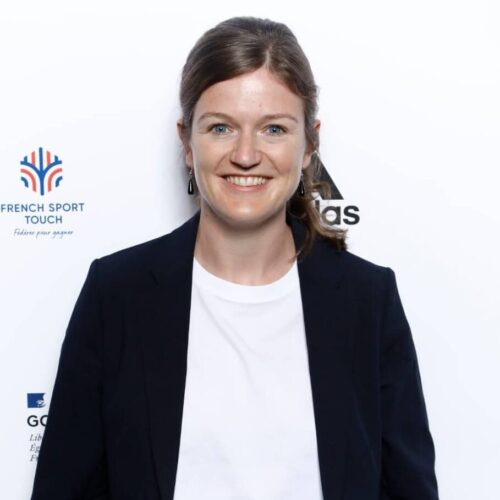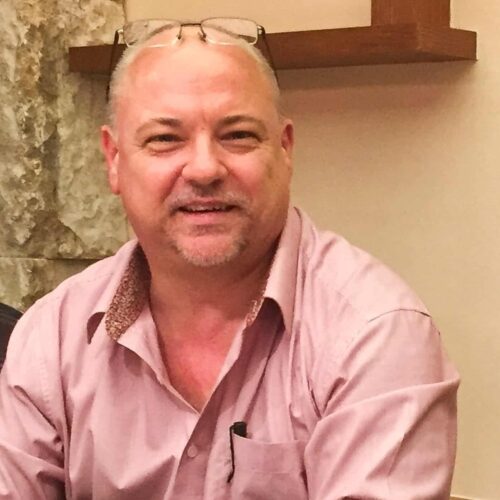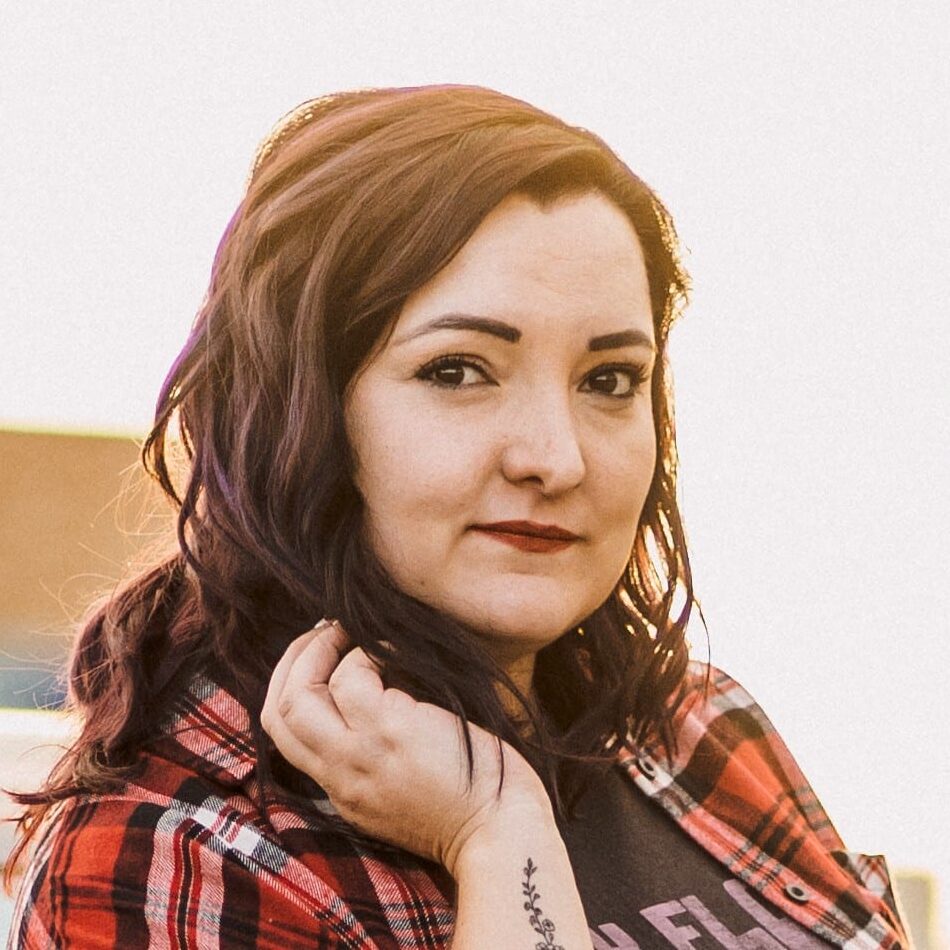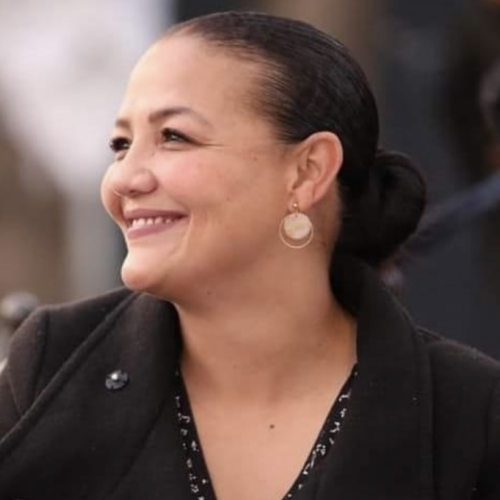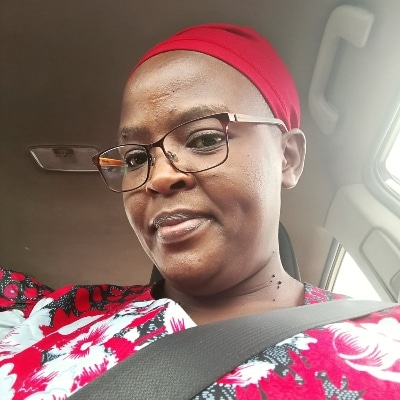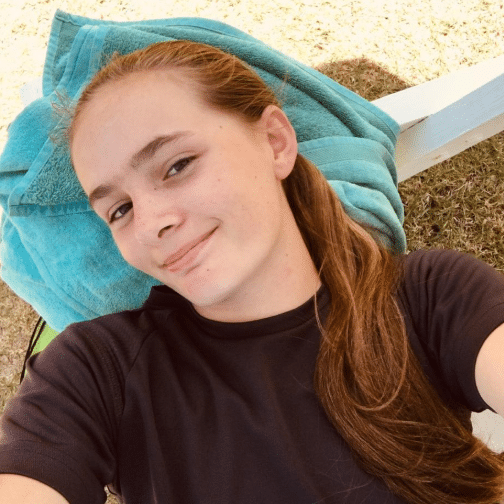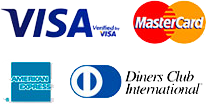Fundamental Counselling Skills
R4,620.00

Course Overview
Some people naturally become the go-to person for advice and support, whether at work, in education, or among friends. But effective helping conversations require more than just a listening ear, they require skill, structure, and self-awareness.
The Fundamental Counselling Skills micro-credential introduces you to the essential principles, processes, and techniques that form the foundation of effective counselling.
In this six-week course, you will explore the Relational Skills Model, learning how to build trust, create a supportive environment, and guide meaningful conversations.
Through videos, readings, and discussions, you’ll gain practical skills such as active listening, paraphrasing, summarising, identifying emotions, goal setting, and fostering self-management strategies. You’ll also develop as a reflective practitioner, regularly assessing and refining your communication approach.
By the end of this course, you will have a structured framework for establishing, deepening, and maintaining helping relationships—whether in professional settings or everyday interactions.
If you’re looking to strengthen your ability to support and empower others, this course will provide basic counselling knowledge and skills to make a meaningful impact.
FAQs
What are the entry requirements?
Anyone 18 years of age or older can sign up for this micro-credential course. There are no academic entry requirements or conditions.
Who is this course for?
This course is for anyone interested in building basic counselling knowledge and practical skills.
What is the time commitment?
A total of 60 hours is required to complete the micro-credential course. An average of 10 hours weekly over 6 weeks.
What do you need to do the course?
- Access to Microsoft Word
- Google Chrome (recommended)
- Stable internet connection
Is the course accredited?
The micro-credential course is not accredited and non-credit bearing.
What is counselling?
Counselling is a talking therapy that involves a trained counsellor listening to an individual, couple or family and helping them find ways to deal with emotional issues and trauma. Counselling allows people to discuss their problems and feelings in a safe and confidential environment. Read more here.
Course highlights
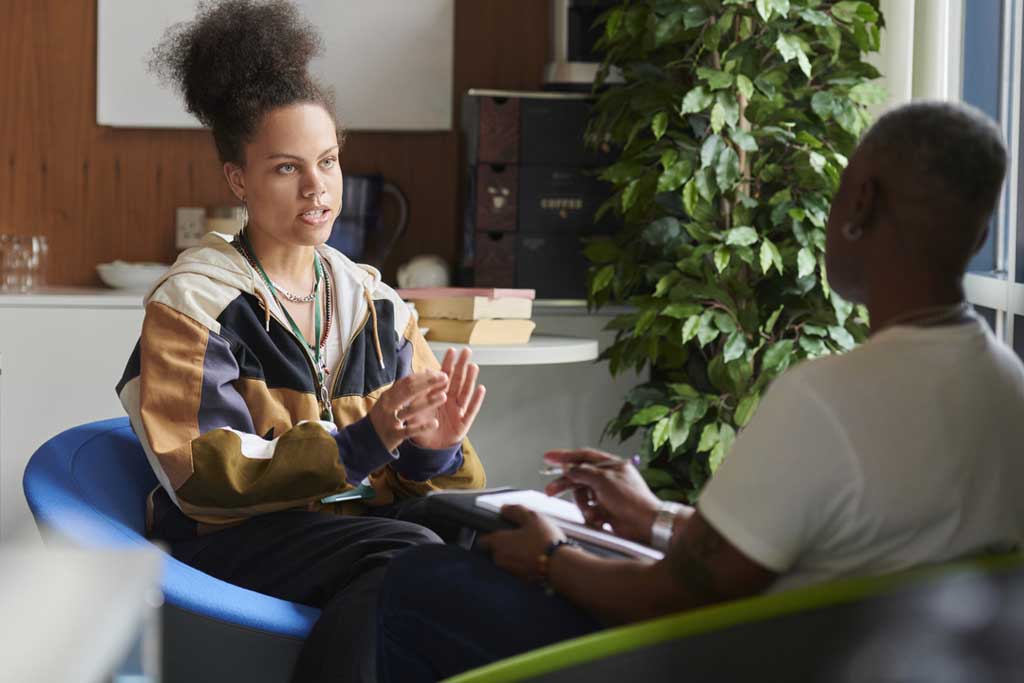
-
Build basic counselling skills and knowledge.
-
Sharpen your helping skills to better support others.
-
Learn how to apply the Relational Skills Model.
Dates
- Class of 2025 August: 11 August – 21 September
- Class of 2025 October: 6 October – 16 November
There are no online classes. Course content is released on a weekly basis allowing you to work through course material, and meet weekly targets, at a time that is most convenient to you.
Learner Experience
Certification
Upon completion, you will receive a digital certificate of competence and badge. Your certificate and badge can be shared on 100+ social media platforms, allowing you to share your achievement with a single click.
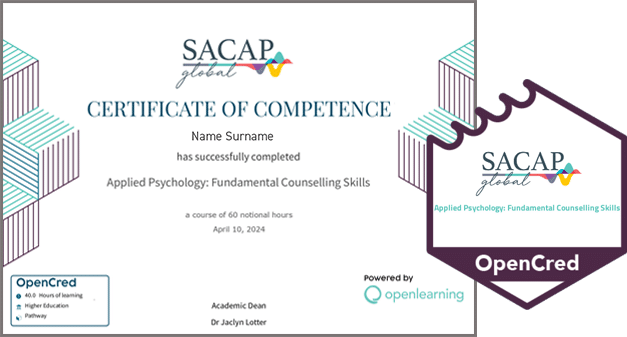
Credential Type
The OpenLearning team has reviewed this course to ensure quality academic learning within the Malaysian and Australian credentialing framework.
An OpenLearning OpenCred is a type of credential that can stand-alone or interact with a formal qualification. OpenCred courses are market-leading online courses that prepare learners for the future of work.
This course has been designed and developed by experts in the field of psychology. The Fundamental Counselling Skills micro-credential is for anyone needing to upskill in this area and offers 40 hours of learning and assessment.
Learners study online with peers and receive robust academic content while acquiring practical industry-relevant skills.
OpenCreds
Completing this course leads to obtaining an OpenCred.
- 40 hours of learning
- OpenCred classification: Pathway
Stackable Credentials
Stack specified combinations of micro-credentials and they can be recognised as equivalent to a module within the Bachelor of Applied Social Science Degree at SACAP. Fundamental Counselling Skills can be stacked with Deepening Your Counselling Skills, and if you meet the minimum entrance criteria, you can enrol for the Bachelor of Applied Social Science Degree and apply for module exemption.

What You’ll Learn
Over the course of six (6) weeks, through videos, readings and discussions, you will explore the following topics:
Week 1: First phase of the Relational Skills Model: Getting to know the person and engage with them.
Week 2: Second phase of the Relational Skills Model: Creating a safe and comfortable environment for the client, as well as assessment and problem-identification.
Week 3: Third phase of the Relational Skills Model: Exploring the presenting issues in more depth.
Week 4: Fourth phase of the Relational Skills Model: Setting goals and evaluating possible strategies.
Week 5: Fifth phase of the Relational Skills Model: Ways to support and encourage the client to implement their goals, maintain change, and develop self-management strategies.
Week 6: Integration of all your observations, journaling and feedback received to date – creating your own development plan.
Course Outcomes
By the end of this course, you will be able to:
- Demonstrate self-reflective evaluation of applied skills in setting up a helping relationship.
- Develop a helping relationship, work with a helping relationship, deepen the established helping relationship and maintain and end a helping relationship.
- Design a development plan for improving your identified skills.
The Team
The SACAP Global team brings a wealth of knowledge and practical experience across various disciplines. Our expert short course developers and dedicated support team are passionate about sharing their insights to help you get the most out of your online learning journey.
